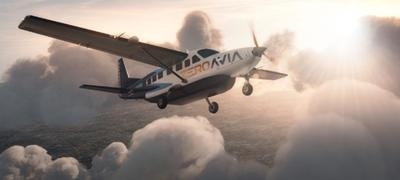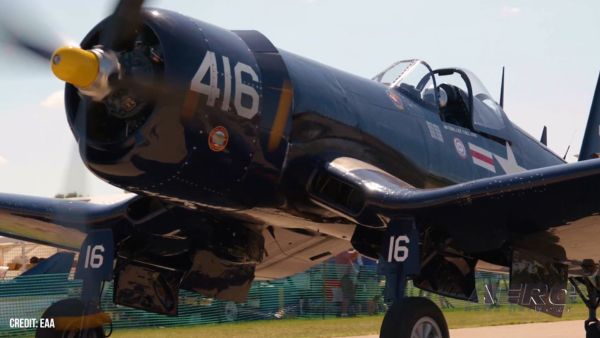Sun, Mar 30, 2025
Advertisement
More News
 Aero-News: Quote of the Day (04.27.25)
Aero-News: Quote of the Day (04.27.25)
“Our company is moving in the right direction as we start to see improved operational performance across our businesses from our ongoing focus on safety and quality. We conti>[...]
 ANN's Daily Aero-Linx (04.27.25)
ANN's Daily Aero-Linx (04.27.25)
Aero Linx: International Committee for Airspace Standards and Calibration (ICASC) The International Committee for Airspace Standards and Calibration (ICASC) was created following t>[...]
 Classic Aero-TV: Veteran's Airlift Command -- Serving Those Who Served
Classic Aero-TV: Veteran's Airlift Command -- Serving Those Who Served
From 2013 (YouTube Edition): One Of Aviation's Most Positive Efforts... The VAC!!! In all the doddering, misleading, anti-aviation blather we've had to deal with over the last few >[...]
 Airborne-NextGen 04.22.25: NYC eVTOL Network, ForgeStar-1, Drone Safety Day
Airborne-NextGen 04.22.25: NYC eVTOL Network, ForgeStar-1, Drone Safety Day
Also: CiES Documents, Hypersonic Tech, SKYTRAC Health Monitoring, Skyryse Archer Aviation announced a blueprint for an eVTOL network in New York City that would connect travelers b>[...]
 Airborne 04.21.25: Charter Bust, VeriJet Woes, Visual Approach Risks
Airborne 04.21.25: Charter Bust, VeriJet Woes, Visual Approach Risks
Also: Sun Country CEO to Spirit, Indian AF Rafale Jets, Archer-United, Avflight Grows Federal prosecutors recently filed a lawsuit against an uncertified charter flight company and>[...]
blog comments powered by Disqus





